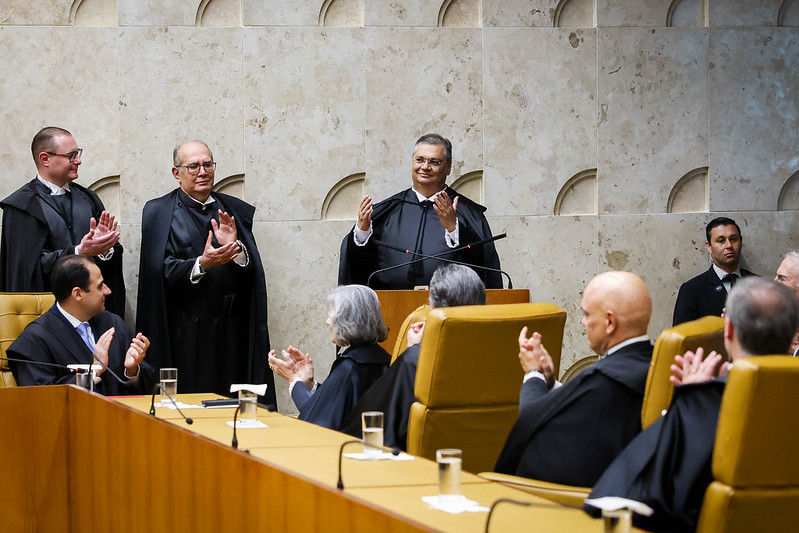On February 29, Flávio Dino, the newest justice of Brazil’s Supreme Court, participated for the first time in a case involving defendants accused of participating in the January 8 riots in Brasília.
Justice Dino voted with the majority of the court to sentence nine defendants to 14 years in prison and six others to 17 years. For supporters of far-right former President Jair Bolsonaro, this was the latest repressive act by a judicial body intent on silencing dissent. In Brazil’s strikingly polarized political moment, the Supreme Court has become a hotbed of alleged anti-Bolsonaro activism.
This perspective obscures the recent history of left-wing denunciations of the court and has made it less likely for progressive critiques of the Supreme Court to emerge. A lowering of the country’s political temperature can and should lead to a renewed debate about legitimate grievances with the court’s actions.
Since his rise to national power in 2018, one of Jair Bolsonaro’s defining political characteristics has been his explicit hostility toward the Supreme Court. His presidency has been marked by a series of...


 Search
Search






































